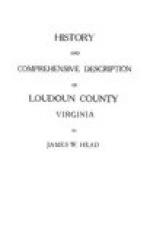The new regime differed but little from the old until the fall of 1865, when the Freedmen’s Bureau, aided by the negro soldiers and white emissaries, had filled the minds of the credulous ex-slaves with false impressions of the new and glorious condition that lay before them. Then, with the extension of the Bureau and spread of the army posts, many of the negroes became idle, neglected the crops planted in the spring, and moved from their old homes to the towns or wandered aimlessly from place to place.
Upon leaving their homes the blacks collected in gangs at the cross-roads, in the villages and towns, and especially near the military posts. To the negro these ordinary men in blue were beings from another sphere who had brought him freedom, a something he could not exactly comprehend, but which, he was assured, was a delightful state.
Upon the negro women often fell the burden of supporting the children, to which hardship were traceable the then common crimes of foeticide and child murder. The small number of children during the decade of Reconstruction was generally remarked. Negro women began to flock to the towns; how they lived no one can tell; immorality was general among them. The conditions of Reconstruction were unfavorable to honesty and morality among the negroes, both male and female.
Their marriage relations were hardly satisfactory, judged by white standards. The legislatures in 1865-1866 had declared slave marriages binding. The reconstructionists denounced this as a great cruelty and repealed the laws. Marriages were then made to date from the passage of the Reconstruction Acts. As many negro men had had several wives before that date they were relieved from the various penalties of desertion, bigamy, adultery, etc. Some seized the opportunity to desert their wives and children and acquire new help-meets. While much suffering resulted from the desertion, as a rule, the negro mother alone supported the children better than did the father who stayed.
Negro women accepted freedom with even greater seriousness than did the men, and were not always, nor easily, induced to again take up the familiar drudgery of field labor and domestic service. To approximate the ease of their former mistresses, to wear fine clothes and go often to church were their chief ambitions. Negro women had never been as well-mannered, nor, on the whole, as good natured and cheerful as the negro men. Both sexes, during Reconstruction, lost much of their native cheerfulness; the men no longer went singing and shouting to their work in the fields; some of the blacks, especially the women, became impudent and insulting in their bearing toward the whites.




